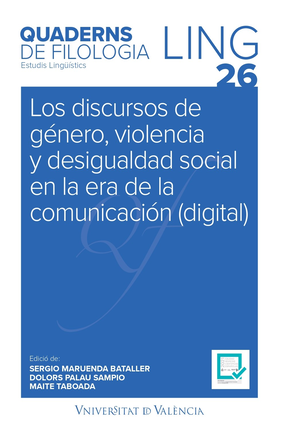Press coverage of sexual abuse in the MeToo era: the Polanski, Weinstein and P. Domingo case
DOI:
https://doi.org/10.7203/qf.0.21975Keywords:
MeToo, Violence against women, Media coverage, Harvey Weinstein, Roman Polanski, Plácido Domingo Abstract
Abstract
This article analyses news coverage of the sexual abuse of women between 2015 and 2020, in the context of the emergence of the MeToo movement, which began in 2017 in the United States. The sample is made up of two Spanish generalist newspapers, El País and El Mundo, and how they have reported on the cases of producer Harvey Weinstein, film director Roman Polanski and singer Plácido Domingo. A qualitative analysis was carried out on 1,625 articles, with journalistic categories of the protagonism of the victim and the perpetrator, description of the character and his actions, sources alluded to, recourse to expert voices, and whether or not the laws against sexual abuse are referenced. The three examples chosen can show as there has been a shift in the last three years of media treatment of sexual abuse in socalled MeToo era, in the direction of empowerment of the victim and loss of credibility of the abuser. The Weinstein case is more remarkable and has clearly put the issue of sexual abuse on the global agenda. Polanski’s showed an increase in the number of news stories about the abuse 43 years after it happened, and a doubling in the number of mentions of Plácido Domingo from one year to the next. Qualitatively, even the hard news emphasise the seriousness of the events and most opinion pieces speak negatively, in many cases placing them in a context of feminist struggle on a global scale. Nevertheless, the deification of the abuser artist is still detected.
 Downloads
Downloads
Downloads
Published
How to Cite
-
Abstract1824
-
PDF (Español)940
Issue
Section
License
 Este obra está bajo una licencia de Creative Commons Reconocimiento-NoComercial-SinObraDerivada 4.0 Internacional.
Este obra está bajo una licencia de Creative Commons Reconocimiento-NoComercial-SinObraDerivada 4.0 Internacional.
Authors who publish with this journal agree to the following terms:
- Authors retain copyright and grant the journal right of first publication with the work simultaneously licensed under a Creative Commons Attribution License that allows others to share the work with an acknowledgement of the work's authorship and initial publication in this journal.
- Authors are able to enter into separate, additional contractual arrangements for the non-exclusive distribution of the journal's published version of the work (e.g., post it to an institutional repository or publish it in a book), with an acknowledgement of its initial publication in this journal.
- Authors are permitted and encouraged to post their work online (e.g., in institutional repositories or on their website) prior to and during the submission process, as it can lead to productive exchanges, as well as earlier and greater citation of published work (See The Effect of Open Access).



